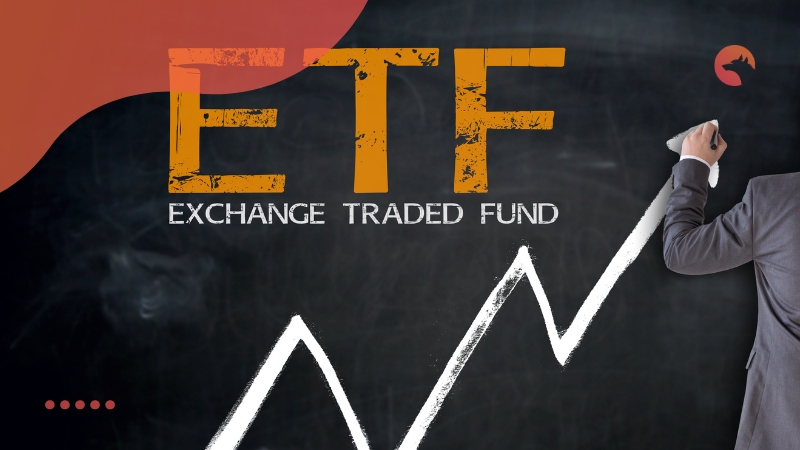What are exchange-traded funds (ETFs)? Exchange-traded funds, commonly known as ETFs, are investment funds that trade on stock exchanges, much like individual stocks. They offer a way for investors to buy a basket of assets, such as stocks, bonds, or commodities, in a single trade. A
Investors often ask themselves what are exchange-traded funds, and why they have grown so popular in recent years. The answer lies in their versatility and cost-effectiveness. ETFs provide an affordable way to diversify one’s portfolio without the need to purchase each individual security separately.
In a rapidly changing financial landscape, knowing what are exchange-traded funds can empower investors to make more informed decisions. ETFs offer liquidity, transparency, and tax efficiency—features that are often highlighted as reasons for their increasing adoption.
The Basics of Exchange-Traded Funds (What are exchange-traded funds)

Exchange-traded funds (ETFs) are collections of assets pooled together into a single investment vehicle. Unlike mutual funds, ETFs are traded on the stock exchange throughout the day, which means their price fluctuates based on supply and demand, just like individual stocks. This unique feature allows for more flexibility in managing investments.
One of the key benefits of ETFs is diversification. By investing in an ETF, an individual gains exposure to a broad range of securities, which can help mitigate risk. For instance, instead of buying shares in several technology companies individually, an investor could purchase an ETF that tracks the tech sector, thereby spreading risk across many firms.
Tools for Investing in ETFs
If you are looking for an easy and efficient platform to start investing in ETFs, consider using SoFi, offers tools and resources designed to help both beginner and experienced investors manage and grow their portfolios with ETFs.
Benefits of Investing in ETFs
ETFs offer numerous benefits that make them an attractive choice for investors:
- Low Costs: Most ETFs are passively managed, meaning they track an index rather than relying on active stock selection, which generally translates to lower management fees.
- Tax Efficiency: ETFs are known for their tax advantages. The way ETFs are structured allows for fewer taxable events compared to mutual funds, which is particularly beneficial for those in higher tax brackets.
- Flexibility: Unlike mutual funds, ETFs can be bought and sold throughout the trading day, providing investors with the ability to react quickly to market changes.
Risks of ETFs (What are exchange-traded funds)
Despite their benefits, ETFs also come with certain risks. Market volatility can cause fluctuations in the value of ETFs, and there is always the possibility of tracking error—the difference between the ETF’s performance and the index it aims to replicate. Understanding these risks is crucial for making informed investment decisions.
Exploring Related Investment Options
For those who want to explore other investment opportunities, understanding how to invest in mutual funds can be highly beneficial. Mutual funds provide a way to diversify investments and can be a great alternative or complement to ETFs, depending on individual financial goals.
1. Stock ETFs
Stock ETFs invest primarily in a collection of equities. These funds aim to provide exposure to a specific sector, index, or the entire stock market. They are often chosen for their ability to capture the performance of the overall equity market with lower cost than actively managed funds.
2. Bond ETFs (What are exchange-traded funds)
Bond ETFs focus on bonds, such as government or corporate debt. They offer an accessible way for investors to gain exposure to fixed-income securities without the complexities of buying individual bonds. This type of ETF is particularly appealing for investors seeking regular income through interest payments.
FAQ: What are exchange-traded funds
1. What are exchange-traded funds (ETFs)?
Exchange-traded funds are investment funds that are traded on stock exchanges, similar to stocks. They provide a way for investors to buy a collection of assets in a single trade.
2. How do ETFs differ from mutual funds?
ETFs differ from mutual funds in that they are traded on stock exchanges throughout the day, whereas mutual funds are typically traded only at the end of the trading day. ETFs also tend to have lower fees compared to actively managed mutual funds.
3. What are the benefits of investing in ETFs?
The benefits of investing in ETFs include diversification, low management fees, tax efficiency, and the ability to trade them throughout the day like stocks.
4. Are ETFs a good investment for beginners? (What are exchange-traded funds)
Yes, ETFs are often considered a good investment for beginners due to their low costs, diversification, and ease of access. They provide a straightforward way to invest in a wide range of assets without needing in-depth knowledge of each individual security.
5. What types of assets can ETFs hold?
ETFs can hold a variety of assets, including stocks, bonds, commodities, and even currencies. This allows investors to gain exposure to different asset classes through a single investment.
6. What are some common types of ETFs?
Common types of ETFs include stock ETFs, bond ETFs, commodity ETFs, and sector-specific ETFs. Each type of ETF focuses on a particular category of assets or market sector.
7. Can ETFs lose value?
Yes, ETFs can lose value if the assets they hold decrease in value. Like any investment, there are risks involved, and it is important to understand the underlying assets and market conditions.
8. How are ETFs taxed?
ETFs are generally tax-efficient compared to mutual funds because they experience fewer taxable events. However, investors are still subject to capital gains taxes and other relevant taxes depending on their jurisdiction.
9. What should I consider before investing in ETFs?
Before investing in ETFs, consider factors such as your risk tolerance, investment goals, the type of ETF, associated fees, and market conditions. It is also helpful to understand the index that the ETF is tracking to ensure it aligns with your investment strategy.
Conclusion: What are exchange-traded funds
In conclusion, exchange-traded funds are versatile financial instruments that offer a range of benefits, such as diversification, lower costs, and tax efficiency. While ETFs are accessible and flexible, it is important for investors to be aware of the associated risks, such as market volatility and tracking errors.
By carefully selecting ETFs that match their investment goals and risk tolerance, investors can use these funds to build a balanced and diversified portfolio that aligns with their long-term financial objectives.
Mutual funds and ETFs share some similarities, such as providing diversification and easy access to different asset classes, but they also have distinct differences in terms of management style, cost structure, and liquidity.



